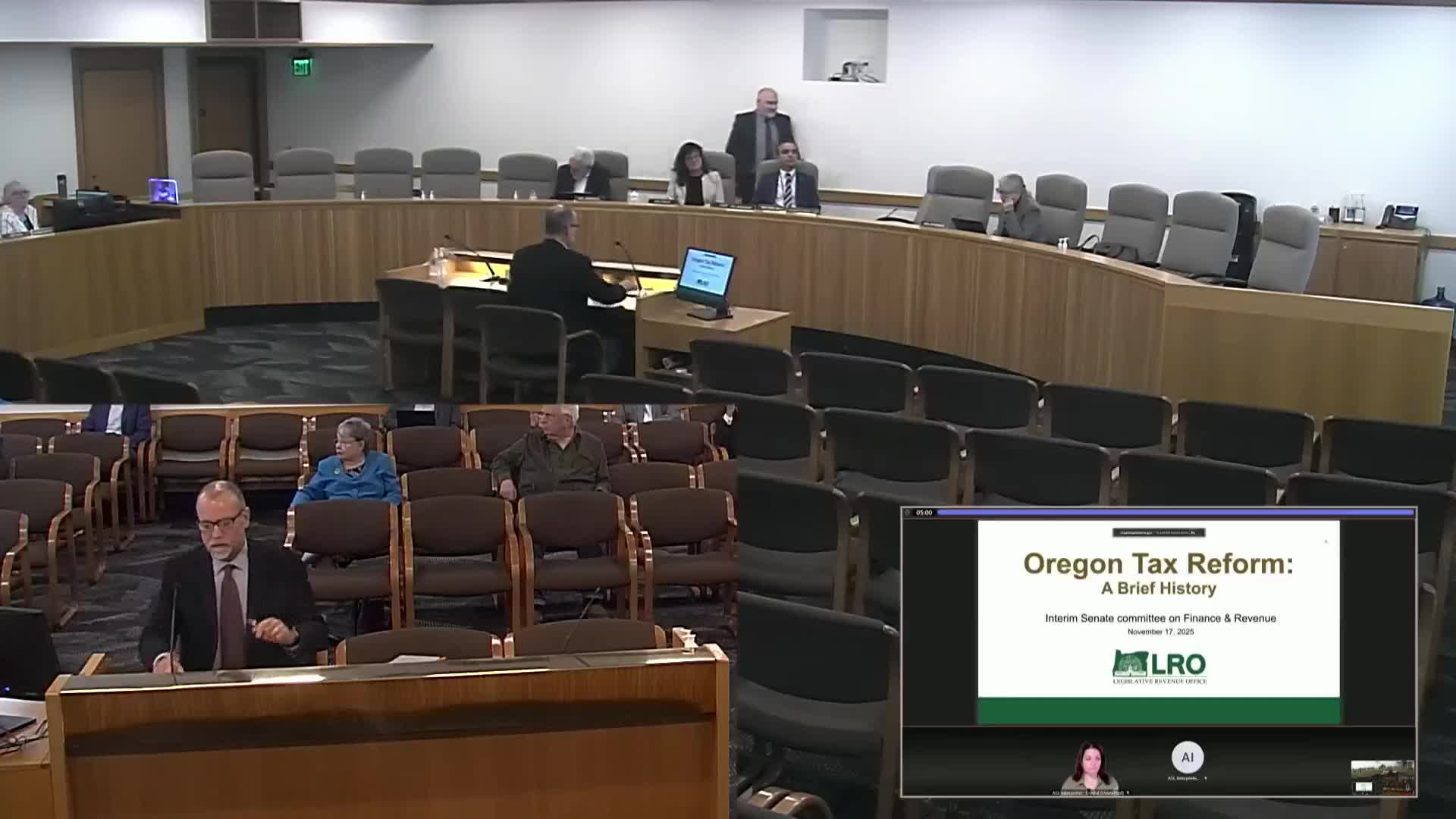LRO frames tax-reform trade-offs and previews 2026 bills including an estate-tax technical package
Get AI-powered insights, summaries, and transcripts
Subscribe
Summary
The Legislative Revenue Office told the Senate Finance and Revenue Committee that Oregon's revenue system is highly dependent on income taxes, outlined past reform efforts and analytical tools (OTIM), and previewed three 2026 committee bills: a technical clean-up, a small policy estate-tax bill, and a placeholder for broader reform.
The Legislative Revenue Office gave the Senate interim finance committee a wide-angle briefing on the history, tools and trade-offs of tax reform in Oregon and previewed the three revenue bills the committee will sponsor for 2026.
Chris Alenak of the Legislative Revenue Office opened by placing reform discussions in budget context: "for 2527... it's the state budget... about $140,000,000,000," he said, and he noted the general fund is driven largely by personal income tax receipts. Alenak walked senators through the analytic vocabulary used in reform debates: adequacy, fairness (vertical and horizontal equity), incidence (initial versus final), stability and administration costs.
Alenak summarized major review efforts stretching from the late 1990s through task forces in 2002, 2008 and 2015, saying those efforts repeatedly raised the same trade-offs: volatility from income-tax reliance, the intertwined state-local school funding responsibilities, and the practical costs of administration and compliance.
He described institutional tools available to the legislature, including the Department of Revenue's tax-expenditure report and the Oregon Tax Incidence Model (OTIM), which LRO uses to run simulations about who bears tax changes and what reforms might do to growth and distribution.
On process and near-term work, Alenak told the committee that under House Bill 2321 LRO must produce a report on property-tax system engagement and that the committee will be part of public education and outreach efforts alongside LOC and AOC. Looking toward 2026, he previewed three committee bills: "one technical fix or small policy change" (largely non-revenue), a modest estate-tax bill with limited expected revenue impact, and a placeholder bill designed to keep the tax-reform conversation active into the session.
Committee members asked questions about tax-expenditure disconnects with federal requirements and about the accountability and voter-engagement challenges that followed property-tax measures in the 1990s. Alenak said many federal-based provisions could be disconnected at the state level unless required by federal law or the Oregon Constitution, and he emphasized the difficulty of managing trade-offs when voter initiatives address only part of a fiscal question.
The committee thanked LRO for the briefing and took no formal votes; staff said the presentations would inform the interim analysis and the drafting of the 2026 bills.
